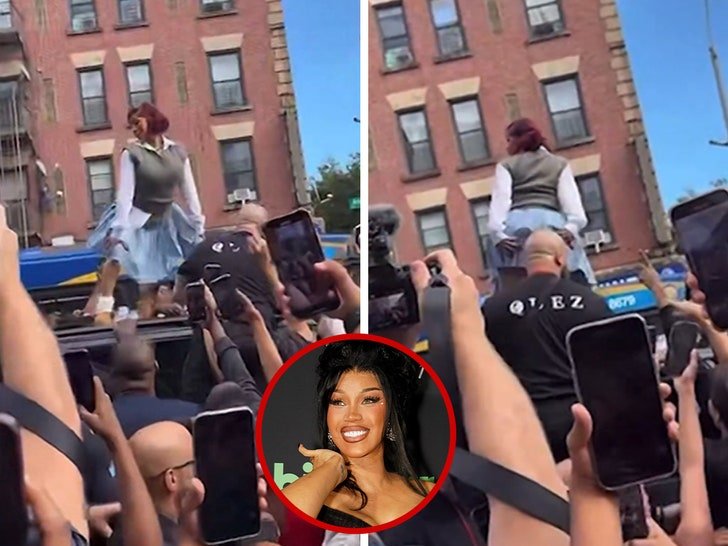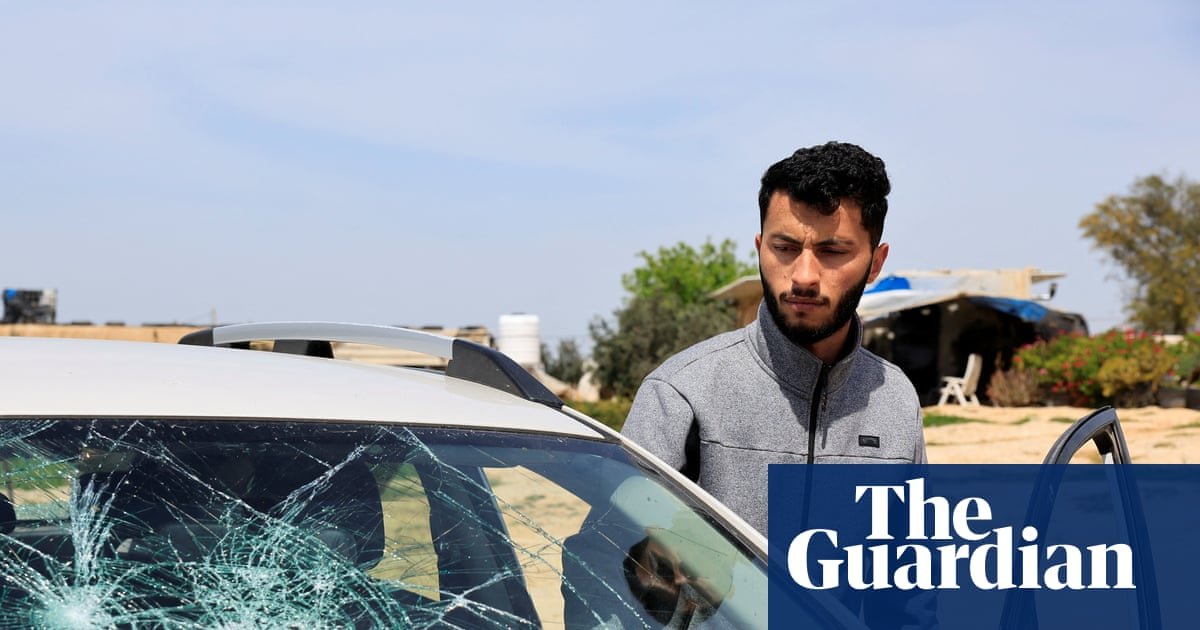Top Stories
Widespread availability of graphic Charlie Kirk shooting video shows content moderation challenges

Immediately after Charlie Kirk was shot during a college event in Utah, graphic video of what happened was available almost instantly online, from several angles, in slow-motion and real-time speed. Millions of people watched — sometimes whether they wanted to or not — as the videos autoplayed on social media platforms.
Video was easy to find on X, on Facebook, on TikTok, on Instagram, on YouTube — even on President Donald Trump’s Truth Social. The platforms, generally, said they were removing at least some of the videos if they violated their policies, for instance if the person was glorifying the killing in any way. In other cases, warning screens were applied to caution people they were about to see graphic content.
Two days after Kirk’s death, videos were still easily found on social media, despite calls to remove them.
“It was not immediately obvious whether Instagram for example was just failing to remove some of the graphic videos of Charlie Kirk being shot or whether they had made a conscious choice to leave them up. And the reason that it that was so hard to tell is that, obviously, those videos were circulating really widely,” said Laura Edelson, an assistant professor of computer science at Northeastern University.
The events illustrate the content moderation challenges platforms face in handling fast-moving real-time events, complicated by the death of a polarizing conservative activist who was shot in front of a crowd armed with smartphones recording the moment.
Ambiguous policies
It’s an issue social media companies have dealt with before. Facebook was forced to contend with people wanting to livestream violence with a mass shooting in New Zealand in 2019. People have also livestreamed fights, suicides and murder.
Similar to other platforms, Meta’s rules don’t automatically prohibit posting videos like Kirk’s shooting, but warning labels are applied and they are not shown to users who say they are under 18. The parent company of Instagram, Facebook and Threads referred a reporter to the company’s policies on violent and graphic content, which they indicated would apply in this case, but had no further comment.
YouTube said it was removing “some graphic content” related to the event if it doesn’t provide sufficient context, and restricting videos so they could not be seen by users under age 18 or those who are not signed in, the company said.
“We are closely monitoring our platform and prominently elevating news content on the homepage, in search and in recommendations to help people stay informed,” YouTube said.
In a statement, TikTok said it is “committed to proactively enforcing our Community Guidelines and have implemented additional safeguards to prevent people from unexpectedly viewing footage that violates our rules.”
TikTok also moved to restrict the footage from its “for you” feed so people have to seek it out if they want to see it and added content warning screens as well as worked to remove videos that showed graphic, close-up footage.
Rewarding engagement
Social media platforms algorithms reward engagement. If a video gets a lot of reaction, it moves to the top of people’s feeds, where more people see it and engage with it, continuing the cycle.
“I mean, this is the world that we have all made. This is the deal we all made. The person who gets to decide what’s newsworthy on Instagram is Mark Zuckerberg. The person who gets to decide what stays up on X is Elon Musk. They own those platforms, and they get to decide what is on them. If we want another world, well, then someone else needs to make it,” Edelson said. “The fact is that we live in a world where the most important channels for what information circulates are controlled by single individuals.”
And it is these individuals who decide what to make a priority. Meta, X and other social platforms have cut back on human content moderation in recent years, relying on artificial intelligence that can both over-and under-moderate.
Regulations vary by region
The U.S. has no blanket regulation prohibiting violent content from being shown on the internet, although generally platforms attempt to restrict minors from being able to see it. Of course, this doesn’t always work, since users’ ages are not always verified and kids often lie about their ages when signing up to social platforms.
Authorities in other places have drawn up laws that require social media companies to do more to protect their users from online harm. Britain and the European Union both have wide-ranging laws that make tech platforms responsible for “online safety.”
The British Online Safety Act requires platforms, even those not based in the United Kingdom, to protect users from more than a dozen types of content, from child sexual abuse to extreme pornography.
Content that depicts a criminal offense such as a violent attack on someone isn’t necessarily illegal content, but platforms would still have to assess whether it falls foul of other banned material such as encouraging terrorism.
The British government says the rules are especially designed to protect children from “harmful and age inappropriate content” and give parents and children “clear and accessible ways” to report problems online.
That includes material that “depicts or encourages serious violence or injury,” which online services are required to prevent children from seeing.
Violations of the U.K. rules can be punished with fines of up to 18 million pounds ($24.4 million) or 10% of a company’s annual revenue, and senior managers can also be held criminally liable for not complying.
The U.K. law is still fairly new, and only started taking effect in March as it gets rolled out in stages.
The rest of Europe has a similar rule book that took effect in 2023.
Under the European Union’s Digital Safety Act, tech companies are required to take more responsibility for material on their sites, under threat of hefty fines. The biggest online platforms and search engines, including Google, Facebook, Instagram and TikTok, face extra scrutiny.
Platforms should give users “easy-to-use” mechanisms to flag content deemed illegal, such as terrorism and child sexual abuse material, Brussels says, adding that platforms have to then act on reports in a “timely manner.”
But it doesn’t require platforms to proactively police for, and take down, illegal material.
—-
AP Media Writer David Bauder contributed to this story.
Top Stories
College football scores, live updates: Week 3 schedule features Miami vs. South Florida, Texas in action

Week 3 of the 2025 college football season headlines on Saturday with a loaded slate on deck. This weekend features three ranked-on-ranked matchups that could shape the College Football Playoff picture down the line, as well as marquee conference games in the ACC and SEC.
After losing in Week 1 to Florida State on the road, No. 19 Alabama bounced back last weekend with a blowout win over ULM. The Crimson Tide have another formidable test this week against Wisconsin at home in one of the top games of the early window. No. 12 Clemson also faces Georgia Tech on the road in the same noon ET slot.
The afternoon slate will see USC travel to West Lafayette, Indiana, to face Purdue on CBS at 3:30 p.m. In the same window, No. 6 Georgia will travel to Knoxville to face No. 15 Tennessee in a battle of CFP contenders. Later in the day, No. 18 South Florida will face No. 5 Miami in one of the top games of the weekend.
To close out the night, No. 8 Notre Dame — fresh off a loss to Miami in Week 1 — will host No. 16 Texas A&M. Meanwhile, Florida, coming off its first loss of the season to USF, will look to bounce back against No. 3 LSU.
CBS Sports will be here every step of the way to update you with the latest scores, highlights and storylines throughout the evening. All times Eastern
College football scores, schedule: Week 3
No. 4 Oregon 34, Northwestern 14 — Recap
Georgia Tech 24, No. 12 Clemson 21 — Recap
No. 19 Alabama 38, Wisconsin 14 — Recap
USC at Purdue — WATCH | LIVE Updates
No. 6 Georgia at No. 15 Tennessee — LIVE updates
UTEP at No. 7 Texas — GameTracker
No. 18 South Florida at No. 5 Miami — 4:30 p.m. on CW — Expert picks, preview
Ohio at No. 1 Ohio State — 7 p.m. on Peacock
Arkansas at No. 17 Ole Miss — 7 p.m. on ESPN
Florida at No. 3 LSU — 7:30 p.m. on ABC — Expert picks, preview
No. 16 Texas A&M at No. 8 Notre Dame — 7:30 p.m. on NBC — Expert picks, preview
Vanderbilt at No. 11 South Carolina — 7:45 p.m. on SEC Network
Duke at Tulane — 8 p.m. on ESPN2
Check out the entire Week 3 scoreboard
Check these out …
Top Stories
Cardi B Twerks On Top of Car While Fans Swarm Pop-Up Event

Cardi B
Taking My ‘Bongos’ on the Road …
Twerking Atop SUV!!!
Published
Cardi B put her rear end into drive at a pop-up event in New York City … throwing it back atop a black SUV while hundreds of fans swarmed around her.
Cardi B turning up at her Bodega pop up in New York City.😩 pic.twitter.com/0DTh8OCoe6
— ໊ (@BardisMedia) September 13, 2025
@BardisMedia
The rapper held an event at a Washington Heights bodega on Saturday … which brought out fans just hoping to catch a glimpse of the megastar.
They got more than a glimpse … ’cause Cardi jumped on top of a car and danced around for the raucous crowd in a gray sweater and blue knee-high skirt — and, she started dropping it low to applause from the audience.
Check out the vid … Cardi’s got her hands on her knees, and she’s backing it up like only she knows how — occasionally flattening her skirt so it doesn’t raise up too high and reveal more than she wants to show.
It’s already been a busy weekend for Cardi … who took her daughter Kulture to a New York Fashion Week event Friday night — with the two twinning in fur ensembles.
Looks like Cardi’s werking hard this weekend — both as a mother and as a dancer!
Top Stories
Oscar-winning Palestinian says home in West Bank raided by Israeli soldiers | West Bank

Palestinian Oscar-winning director Basel Adra has said that Israeli soldiers have conducted a raid at his West Bank home, searching for him and going through his wife’s phone.
Israeli settlers attacked his village on Saturday, injuring two of his brothers and one cousin, Adra told the Associated Press. He accompanied them to the hospital. While there, he said that he heard from family in the village that nine Israeli soldiers had stormed his home.
The soldiers asked his wife, Suha, for his whereabouts and went through her phone, he said, while his nine-month-old daughter was at home. They also briefly detained one of his uncles, he said.
As of Saturday night, Adra said he had no way of returning home to check on his family, because soldiers were blocking the entrance to the village and he was scared of being detained.
Israel’s military said soldiers were in the village after Palestinians had thrown rocks, injuring two Israeli civilians. It said its forces were still in the village, searching the area and questioning people.
Adra has spent his career as a journalist and film-maker chronicling settler violence in Masafer Yatta, the southern reaches of West Bank where he was born.
After settlers attacked his co-director, Hamdan Ballal, in March, he told the AP that he felt they were being targeted more intensely since winning the Oscar.
He described Saturday’s events as “horrific”.
“Even if you are just filming the settlers, the army comes and chases you, searches your house,” he said. “The whole system is built to attack us, to terrify us, to make us very scared.”
Another co-director, Yuval Abraham, said he was “terrified for Basel”.
“What happened today in his village, we’ve seen this dynamic again and again, where the Israeli settlers brutally attack a Palestinian village and later on the army comes, and attacks the Palestinians.”
No Other Land, which won an Oscar this year for best documentary, depicts the struggle by residents of the Masafer Yatta area to stop the Israeli military from demolishing their villages.
allal and Adra made the joint Palestinian-Israeli production with Israeli directors Abraham and Rachel Szor.
The film has won a string of international awards, starting at the Berlin International film festival in 2024. It has also drawn ire in Israel and abroad, as when Miami Beach proposed ending the lease of a cinema that screened the documentary.
Israel captured the West Bank in the 1967 six-day war, along with the Gaza Strip and East Jerusalem. The Palestinians want all three for their future state and view settlement growth as a major obstacle to a two-state solution.
Israel has built well over 100 settlements, home to more than 500,000 settlers who have Israeli citizenship. The 3 million Palestinians in the West Bank live under seemingly open-ended Israeli military rule, while the western-backed Palestinian Authority administers population centres.
The Israeli military designated Masafer Yatta in the southern West Bank as a live-fire training zone in the 1980s and ordered residents, mostly Arab Bedouin, to be expelled.
About 1,000 residents have largely remained in place, but soldiers regularly move in to demolish homes, tents, water tanks and olive orchards – and Palestinians fear outright expulsion could come at any time.
During the war in Gaza, Israel has killed hundreds of Palestinians in the West Bank during wide-scale military operations, and there has also been a rise in settler attacks on Palestinians. There also has been a surge in Palestinian attacks on Israelis.
-

 Business2 weeks ago
Business2 weeks agoThe Guardian view on Trump and the Fed: independence is no substitute for accountability | Editorial
-
Tools & Platforms1 month ago
Building Trust in Military AI Starts with Opening the Black Box – War on the Rocks
-

 Ethics & Policy2 months ago
Ethics & Policy2 months agoSDAIA Supports Saudi Arabia’s Leadership in Shaping Global AI Ethics, Policy, and Research – وكالة الأنباء السعودية
-

 Events & Conferences4 months ago
Events & Conferences4 months agoJourney to 1000 models: Scaling Instagram’s recommendation system
-

 Jobs & Careers2 months ago
Jobs & Careers2 months agoMumbai-based Perplexity Alternative Has 60k+ Users Without Funding
-

 Podcasts & Talks2 months ago
Podcasts & Talks2 months agoHappy 4th of July! 🎆 Made with Veo 3 in Gemini
-

 Education2 months ago
Education2 months agoMacron says UK and France have duty to tackle illegal migration ‘with humanity, solidarity and firmness’ – UK politics live | Politics
-

 Education2 months ago
Education2 months agoVEX Robotics launches AI-powered classroom robotics system
-

 Podcasts & Talks2 months ago
Podcasts & Talks2 months agoOpenAI 🤝 @teamganassi
-

 Funding & Business3 months ago
Funding & Business3 months agoKayak and Expedia race to build AI travel agents that turn social posts into itineraries

















